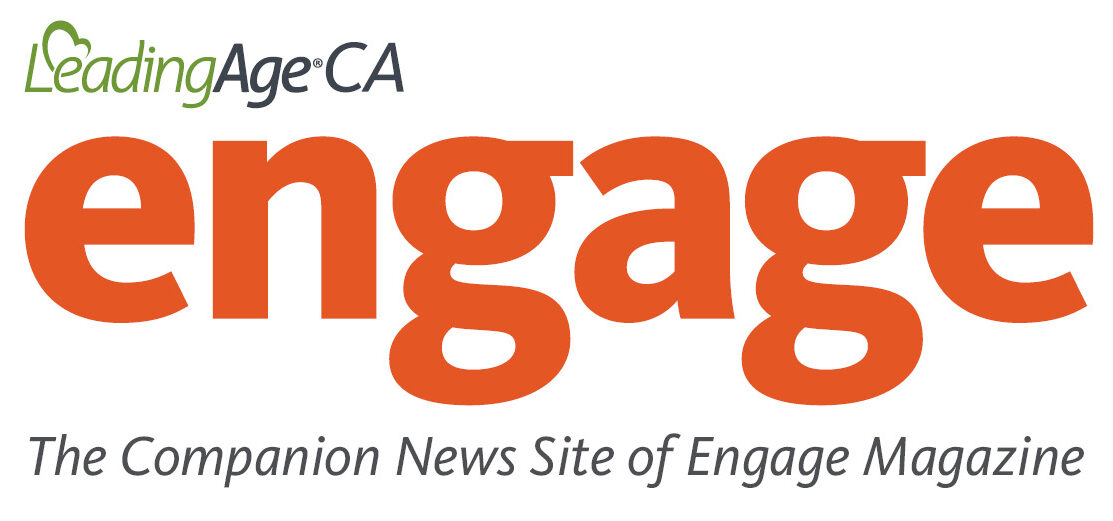By Catherine Graham, Employee Wellness Coordinator, Eskaton
The Eskaton Employee Wellness Program recognizes that a person’s wellness is multi-dimensional, with eight distinct areas that are co-dependent upon each other for a person to feel “complete” or “whole.” The eight dimensions are emotional, physical, occupational, social, spiritual, intellectual, environmental, and financial. If any one of these dimensions is neglected, it will adversely affect the other seven dimensions and over time can decrease a person’s well-being and quality of life.
 An example of this might be if someone worries over money and their inability to pay a debt (financial), it can cause anxiety and stress which crosses over into the emotional and physical dimensions, affecting one’s health and wellbeing and possibly affecting their work performance (occupational). Nurturing all eight of these wellness dimensions is the key to cultivating a well-rounded, healthy lifestyle.
An example of this might be if someone worries over money and their inability to pay a debt (financial), it can cause anxiety and stress which crosses over into the emotional and physical dimensions, affecting one’s health and wellbeing and possibly affecting their work performance (occupational). Nurturing all eight of these wellness dimensions is the key to cultivating a well-rounded, healthy lifestyle.
The eight dimensions of wellness defined are:
Emotional: An awareness and acceptance of one’s feelings. This includes: 1.) the degree to which one feels positive and enthusiastic about oneself and life, 2.) the capacity to manage one’s feelings and related behaviors including the realistic assessment of one’s limitations, and 3.) the development of autonomy, and ability to cope effectively with stress.
Physical: Encouraging whole body fitness that includes cardiovascular and muscular strength, flexibility, mobility, and joint stability as well as engaging in regular physical activity. This includes: 1.) being knowledgeable about food and nutrition, 2.) discouraging the use of tobacco, drugs, and excessive alcohol consumption, and 3.) appropriate use of the medical system.
Occupational: A person’s attitude about one’s work. This includes: 1.) the degree to which one feels personal satisfaction preparing for work, 2.) finding enrichment in one’s life through work, 3.) achieving a balance between work and leisure, and 4.) building relationships with co-workers.
Social: Ability to develop and maintain relationships. This includes: 1.) using good communication skills, 2.) having meaningful relationships, 3.) respecting yourself and others, and 4.) creating a support system.
Spiritual: Finding your purpose, value and meaning in life with or without organized religion. This includes: 1.) participating in activities that are consistent with your beliefs and values, 2.) feeding your mind with positivity, 3.) being kind to others and to yourself, and 4.) focusing on your goals.
Intellectual: Encouraging creative, stimulating mental activities for all of one’s life. This includes: 1.) maintaining curiosity throughout life, 2.) responding positively to intellectual challenges, and 3.) improving skills with learning while expanding the potential for sharing your knowledge with others.
Environmental: Respecting our environment. This includes: 1.) learning how our social, natural, and manufactured environments affect your health and well-being, 2.) respecting nature and those living in it by being aware of the effects of our daily habits on our physical environment, and 3.) leading an environmentally conscious life by recycling and conserving our natural resources.
Financial: The intricate balance of the mental, spiritual, and physical aspects of money. This includes: 1.) understanding your financial situation and being prepared for financial changes, 2.) maintaining a balance that consists of being comfortable with where your money is coming from and where it goes, and 3.) being aware that everyone’s financial values, needs, and circumstances are different.
Our culture and life experiences will affect how we find harmony between each of the different dimensions. Purposeful action with an openness to learning, developing new habits, and continual growth in all dimensions will help people flourish for their lifetime.
Learn more about Eskaton at eskaton.org




